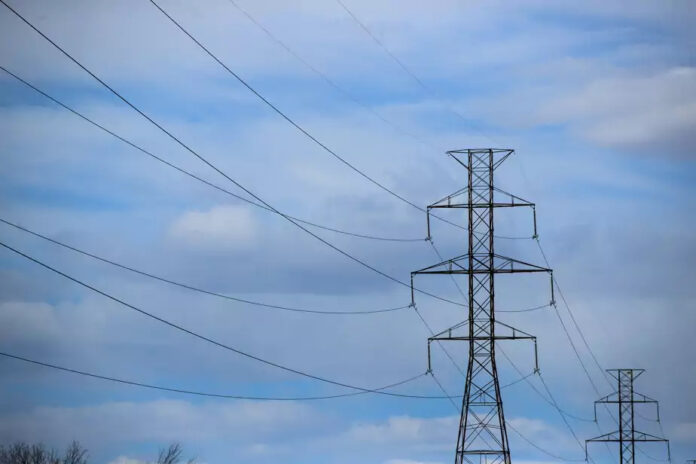A court in Maine has just eliminated the last major obstacle that threatened Hydro-Québec’s mega-export contract to Massachusetts by allowing the resumption of construction work on the transmission line that will bring electricity to Boston.
Unless opponents appeal the decision rendered by a unanimous jury on Wednesday, work halted since the end of 2021 could resume shortly on both sides of the border.
“We will work with our partners to determine the next steps,” said Hydro-Québec spokesperson Lynn St-Laurent, adding that she could not comment on a specific timeline.
The contract with Massachusetts was concluded in 2018. It covers the export of 9.45 terawatt hours per year for 20 years. The first deliveries were to start in December 2022.
A first plan to build a transmission line through New Hampshire had to be abandoned in the face of opposition from the population of the State. The current route, which passes through Maine, was therefore a plan B and it too came up against a strong protest movement.
In the state of Maine, an unlikely coalition of environmentalists and fossil fuel producers fought the transmission line project by any means available.
This opposition culminated in a citizens’ referendum in which the population voted 59% against the transmission line project, the cost of which is estimated at 1.3 billion US dollars and which is under the responsibility of Avangrid, the American partner of ‘Hydro-Quebec.
The Hydro-Quebec partner disputed the results of the referendum, arguing that it had already carried out around 40% of the construction work and invested 450 million US dollars before having to stop everything after the consultation.
The court, however, asked a court of first instance to rule on the good faith of the promoter who started the work when he knew that a referendum could threaten his project.
It is this last mortgage which has just been lifted and which allows the resumption of work stopped for 33 months and the completion of the electricity export contract.
The transmission line is 233 kilometers long, including 100 in Quebec, between the Saint-Adrien-d’Irlande substation and the American border. Work on the Quebec portion, the cost of which is estimated at $600 million, was also halted after the Maine referendum.
Hydro-Québec, which sees the end of its surpluses coming and which is overwhelmed by a new demand for its renewable electricity, has never thought of withdrawing from this contract to allocate the electricity to other purposes, had indicated his ex-CEO, Sophie Brochu, shortly before his departure. “Hydro-Quebec is not in the business of getting out of its contracts. We honor the contracts we have,” she said, adding that the legal battles were being fought by her American partner.
The construction costs of the American portion of the line are assumed by the American partner, but Hydro-Québec spent several million dollars to defend the interests of the project during the referendum campaign.
“The contract remains profitable for Hydro-Quebec,” says Lynn St-Laurent, adding that a transmission line is an asset for “several decades” beyond the duration of the contract with Massachusetts.
Hydro-Quebec has another big export deal with New York State, which depends on building a transmission line under Lake Champlain and the Hudson River to reach New York City. The project known as the Champlain Hudson Power Express is underway.















